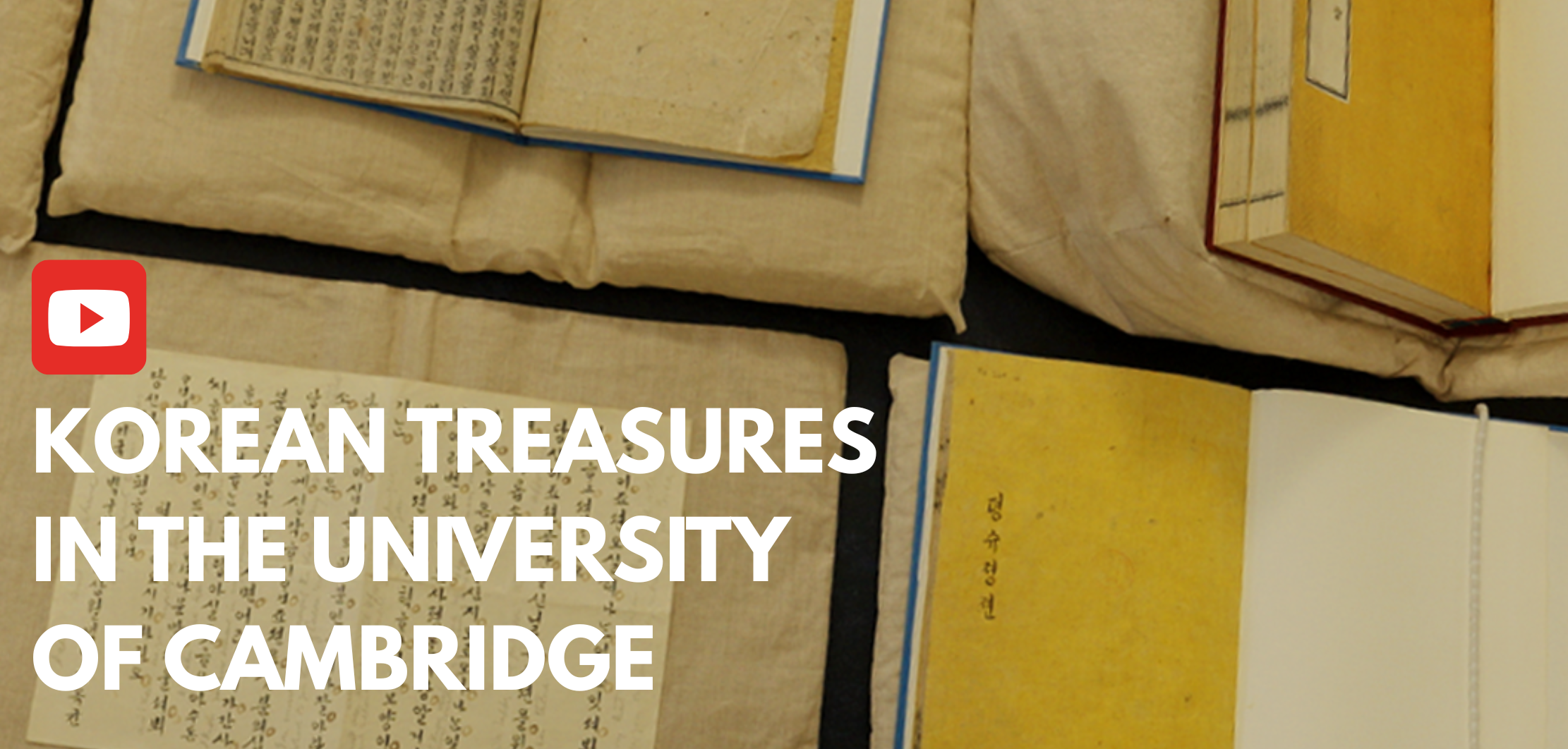
The Korean Cultural Centre UK and the Embassy of the Republic of Korea in the UK presented a special documentary series, 'Korean Treasures in the University of Cambridge', on 28 July 2025. Marking the 80th anniversary of Korea's Liberation, the series uncovers centuries-old Korean heritage located in the University of Cambridge.
Produced in collaboration with the University of Cambridge Library, the series consists of a pilot episode followed by seven short episodes. The episodes feature: ▲The Tale of Jeong Sujeong and ▲The Tale of General Im acquired by ▲Lucy Nevile, an Anglican missionary who stayed in Joseon in 1902; ▲a copy of The Tale of Jo Ung donated by William G. Aston, the inaugural British consul general to Korea; ▲a handwritten letter by Kim Ok-kyun; ▲the first Korean edition of The Pilgrim's Progress; and ▲the Korean Gallery of the Fitzwilliam Museum at the University of Cambridge.
Dr. Seunghye Sun, Director of the Korean Cultural Centre UK, said: "On the occasion of the 80th anniversary of Korea's Liberation, it is such an honour to introduce Korean treasures stored at the University of Cambridge, which has been part of the academic landscape for hundreds of years in the UK. These are not just artefacts of the past, but a testament to Korean aesthetics that remain vibrant today, demonstrating the deep roots of K-culture in British society."
The project was successfully delivered with the cooperation of Cambridge University Library staff: Alessandro Bianchi, Head of World Collections; Jiyeon Wood, Head of the Japanese and Korean Department; Sally Kent, Curator; Stuart Roberts, Head of Communications; and Dr. Seul Bi Lee, lecturer at the University of London.
Through showcasing prestigious Korean-related materials in the Cambridge University Library collection, the documentary series examines how British people of the time viewed Joseon and explores the cultural crossovers between the two countries in literature, language, and philosophy.
The Bangkakbon novels that captivated British collectors demonstrate the power of storytelling and are being rediscovered as cultural archetypes of K-content that engage audiences worldwide today. The dynamic narratives and emotional depth of this classical literature can be considered the emotional foundation of modern K-dramas, K-webtoons, and K-storytelling.
It is particularly noteworthy that Lucy Nevile purchased two Bangkakbon novels, The Tale of Jeong Sujeong and The Tale of General Im, from a Korean bookstore and donated them to Cambridge University. The former tells the story of a female general who fights against the unjust world of the Joseon Dynasty—a unique plotline that emphasises female agency. The latter features dozens of alternative versions of the same story with different endings, aligning with aspects of modern K-dramas that adapt endings according to audience reactions.
The Korean grammar notebooks of William Aston and the novel The Tale of Jo Ung, which he personally donated, reveal the earliest traces of Korean language research in Britain and demonstrate Aston's respect for Korean culture. Kim Ok-kyun's handwritten letter that garnered attention in Korean media is also featured in the series—in this letter to British diplomat Sir Harry Smith Parkes, he expresses his sincere commitment to the modernisation and reform of Joseon. Additionally, the documentary showcases the first woodblock and letterpress Korean translation of The Pilgrim's Progress.
All the digital images of the Korean treasures featured in the documentary series are available for download from the Cambridge University Library's official website.
For the full series of ‘Korean Treasures in the Cambridge University’, please visit https://www.youtube.com/playlist?list=PL5HzY8z331YyWE8SppspPXRtyU33ZBv8-.
A selection of press images is available from LINK.
Most popular
- Liberation exhibition 'Prelude: With a Heart Singing Stars'
- Taekwondo Exhibition 2025: Bringing Taekwondo Closer to Indian Youth
- Endless Bonds: AI and Korean Heritage
- Press Start on Game Art: KCC Explores the Future of Gaming Education and Collaboration
- (Event News) KCCLA Successfully Concluded 44th Lotus Festival